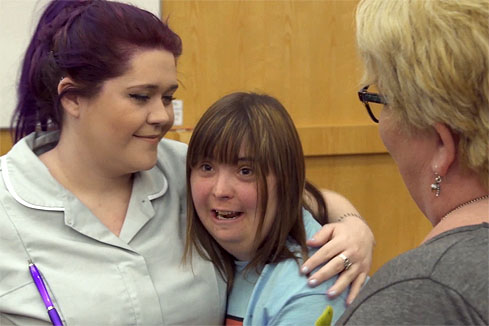
Social Care in England is defined as the provision of social work, personal care, protection or social support services to children or adults in need or at risk, or adults with needs arising from illness, disability, old age or poverty. with other provisions covering disability and responsibilities to informal carers.
That provision may have one or more of the following aims: to protect people who use care services from abuse or neglect, to prevent deterioration of or promote physical or mental health, to promote independence and social inclusion, to improve opportunities and life chances, to strengthen families and to protect human rights in relation to people’s social needs.
Social care is delivered by a wide range of organisations and professionals, and within families and communities. Social care covers a huge range of activities from child protection to end of life care and or independence.
Career roles and progression
| Role | Degree? |
|---|---|
| Support worker Working in a person centred way according to the person’s aspirations, interests and needs. Giving support, advice and emotional support and sometimes providing direct physical help. This includes; shopping, cooking, managing money, looking after your home, staying healthy, personal care, hobbies, pets, relationships, community, leisure or social activities. This might be to one person at a time or to a small group of people who live together. Support workers usually work with the same people for a long time or help with a transition from living with their family to living in their own place. Support workers might work in services like ‘short break’ services where different people come and stay for a while. If someone has a more profound or additional physical disability then the role will involve doing more things for the person but a good support worker is always looking for every opportunity for people to have the choice and independence they are entitled to. | No |
| Senior Support work Different employers will use different titles and responsibilities will vary in different services, but Senior support worker / team leader roles can involve co-ordinating teams of care and support workers, providing the training needed for staff. Leading a team of care/support workers, coordinating shifts and mentoring new starters. This role might involve recruiting and selecting staff and dealing with complaints and disciplinary issues. it may also involve liaising with funders and agreeing care and support plans with professionals from other agencies. | No |
Why choose social care
You will make a massive difference to someone’s life.
You could work with lots of different people, for example someone with a physical disability, a learning disability and/ or autism, dementia, or help someone recover from an accident.
Whoever you work with, you have the potential to make a massive difference to someone’s life. This can make it a very rewarding role, and this is often what people enjoy the most about working in the sector.
There are lots of opportunities to develop and progress.
Social care services are growing and changing all the time, which means there are lots of opportunities to develop and progress.
You can also develop your knowledge through formal qualifications, which a lot of employers will pay for you to do.
Where social workers can work
Social workers often work for the local authority but can also work within the NHS, Independent sector and voluntary or charity sector..